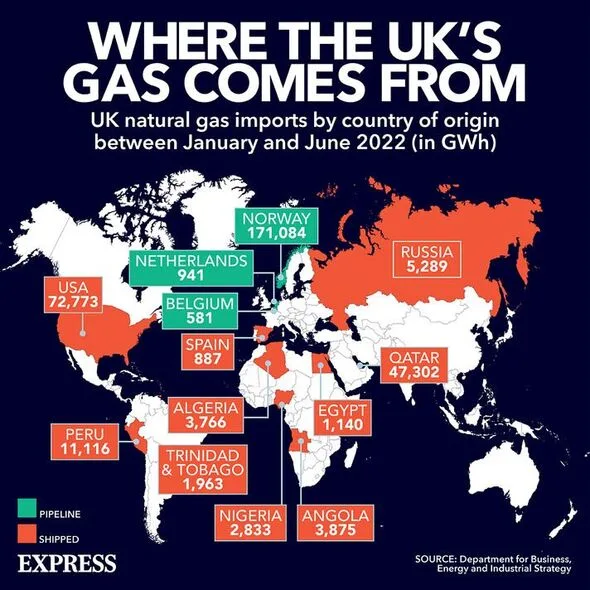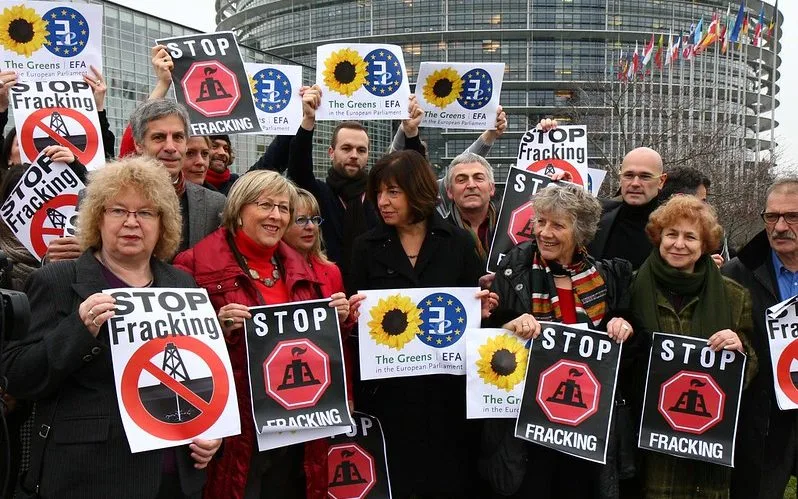The recent surge in Houthi attacks has sent shockwaves across the globe, particularly in Europe, where an oil crisis is unfolding.

the oil crisis in Europe due to Houthi attacks and US counterattacks. The resulting unsafe seas have led to reduced oil supply to Europe, prompting careful spending policies. The ongoing attacks on the Houthis may involve more European countries, potentially worsening the crisis in Yemen.
Houthi Attacks and European Oil Crisis
As Houthi attacks intensify, the safety of sea passages crucial for oil transportation is compromised. This has led to a 50% reduction in oil supply to Europe, prompting Western European governments to implement cautious oil spending policies.

US Counter-Attacks and Escalations
In response to the crisis, the United States has accelerated its attacks on the Houthis, destroying missile bases and intercepting their attacks at sea.

The blog explores the potential consequences of these counter-attacks on the ongoing crisis.
Global Ramifications and Future Scenarios
The reduced oil supply not only affects Europe but has broader global ramifications on trade and economy. The blog analyzes potential future scenarios, including the involvement of more countries and its impact on the crisis in Yemen.
Challenges and Strategies
European governments are faced with challenges as they contemplate potential oil rationing. Simultaneously, the United States’ decision to intensify attacks poses its own set of challenges and risks. The blog assesses these challenges and potential strategies for resolution.
Restricted Red Sea Passage and Shipping Risks
The escalating conflict has led to increasing restrictions on the Red Sea Passage, raising concerns about the feasibility of shipping in the Atlantic Ocean. The potential consequences for global trade are discussed, along with the risks associated with ongoing attacks.
Massacres in Palestine and Ongoing Conflicts
While the focus is on the oil crisis, the blog briefly touches on the continuing massacres in Palestine, providing a snapshot of the complex geopolitical landscape in the region.
Israel’s continuous attacks on Iranian bases are highlighted, focusing on the recent attack in Maza, southwest Damascus. The precision of Israel’s attacks is contrasted with the situation in Palestine, emphasizing intentional massacres. The significant loss of Iranian commanders prompts Iran to reserve the right for a counterattack, marking a notable change in their usual response.
Conclusion
In conclusion, the Houthi attacks have not only triggered an oil crisis in Europe but have set in motion a series of events with far-reaching consequences. As the situation continues to evolve, the world watches closely, recognizing the potential for a paradigm shift in global dynamics. For more information, so please visit this link.
Frequently Asked Questions (FAQs)
1. What is the cause of the unfolding oil crisis in Europe?
- The oil crisis in Europe is primarily attributed to intensified attacks by the Houthi rebels, leading to unsafe sea passages crucial for oil transportation.
2. How has the reduced oil supply affected Europe?
- Europe has experienced a 50% reduction in oil supply due to compromised safety at sea, prompting Western European governments to implement cautious spending policies.
3. What actions has the United States taken in response to the crisis?
- The United States has escalated its attacks on the Houthis, targeting missile bases and intercepting their attacks at sea as a countermeasure to the crisis.
4. What are the potential consequences of these counter-attacks on the ongoing crisis?
- The blog explores the potential consequences of intensified US counter-attacks, including their impact on the broader crisis in Yemen and the involvement of more European countries.
5. How does the oil crisis affect global trade and economy?
- The reduced oil supply not only affects Europe but also has broader global ramifications on trade and economy, which are analyzed in the blog.
6. What challenges do European governments face in response to the crisis?
- European governments are confronted with challenges as they consider potential oil rationing measures to address the crisis effectively.
7. What risks are associated with ongoing attacks on sea passages?
- The escalating conflict has raised concerns about the feasibility of shipping in the Atlantic Ocean due to increasing restrictions on the Red Sea Passage, posing risks for global trade.
8. What ongoing conflicts are briefly mentioned in the blog?
- While focusing on the oil crisis, the blog briefly touches on the continuing massacres in Palestine and Israel’s attacks on Iranian bases, providing insights into the complex geopolitical landscape in the region.
9. How has Israel responded to the situation in Palestine and Iran?
- Israel’s continuous attacks on Iranian bases, such as the recent one in Maza, southwest Damascus, are highlighted in contrast to the situation in Palestine. The precision of Israel’s attacks is emphasized, along with the significant loss of Iranian commanders.
10. What is the overall conclusion drawn from the events described in the blog?
- In conclusion, the Houthi attacks have not only triggered an oil crisis in Europe but have set in motion a series of events with far-reaching consequences, potentially leading to a paradigm shift in global dynamics as the situation continues to evolve.

